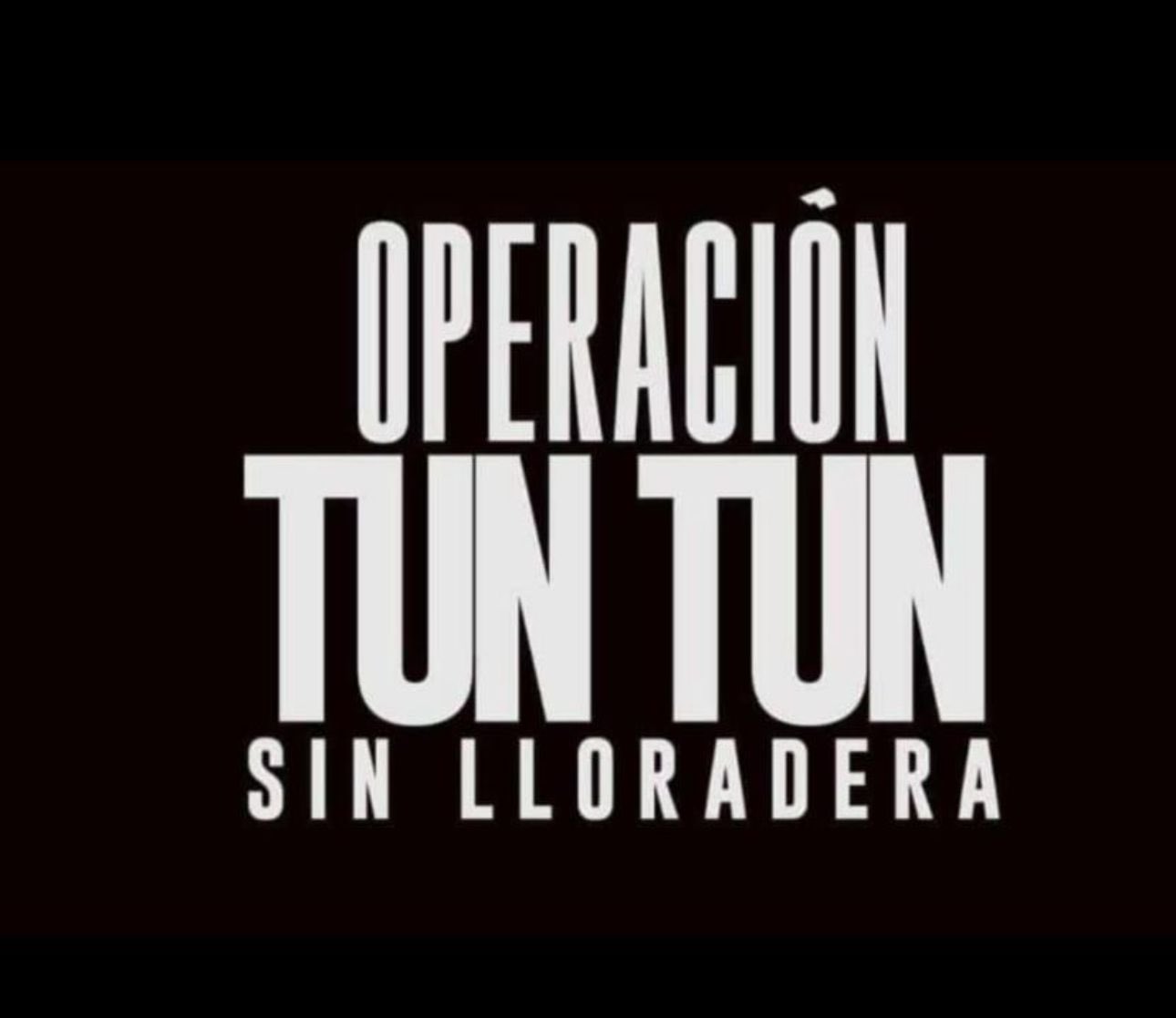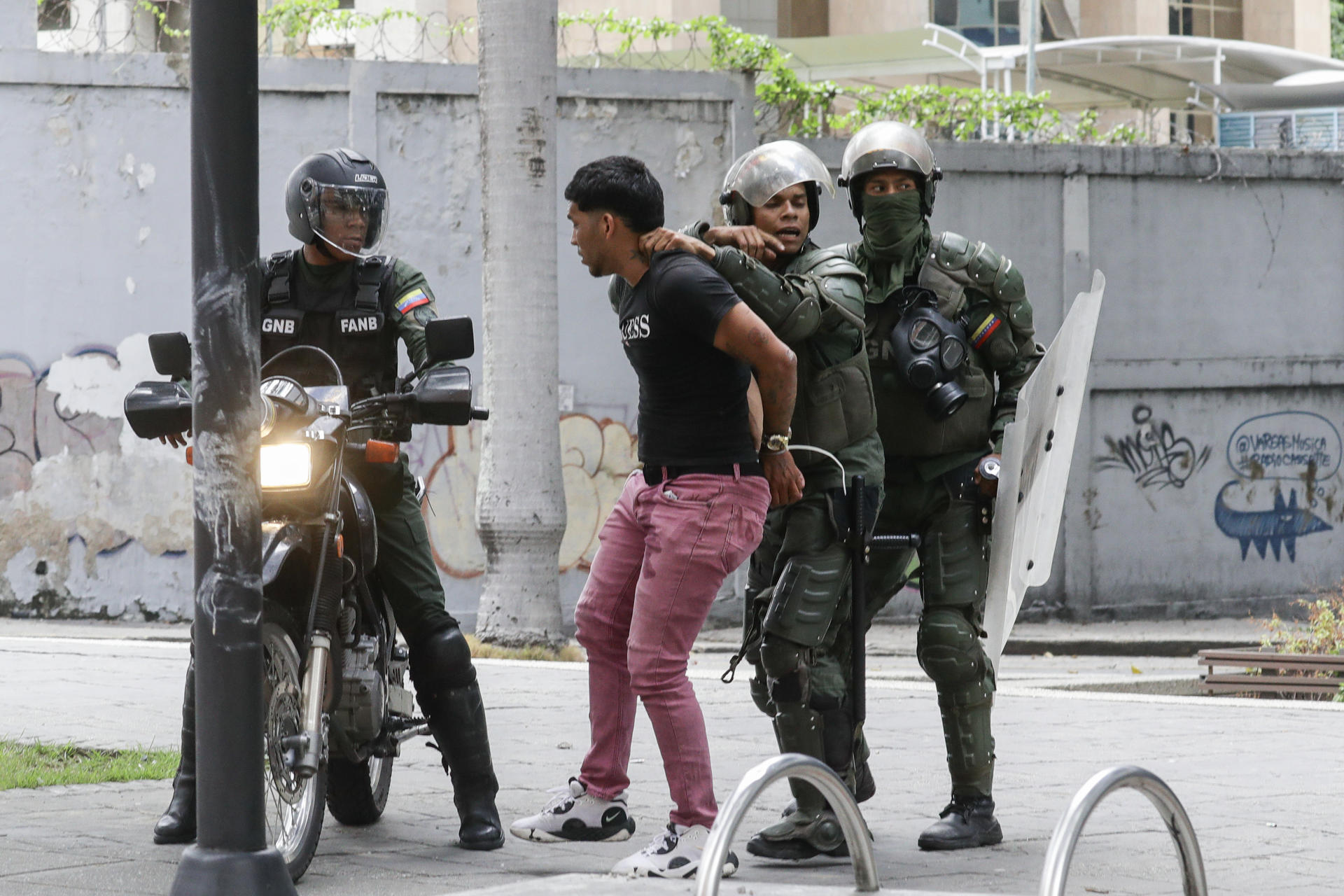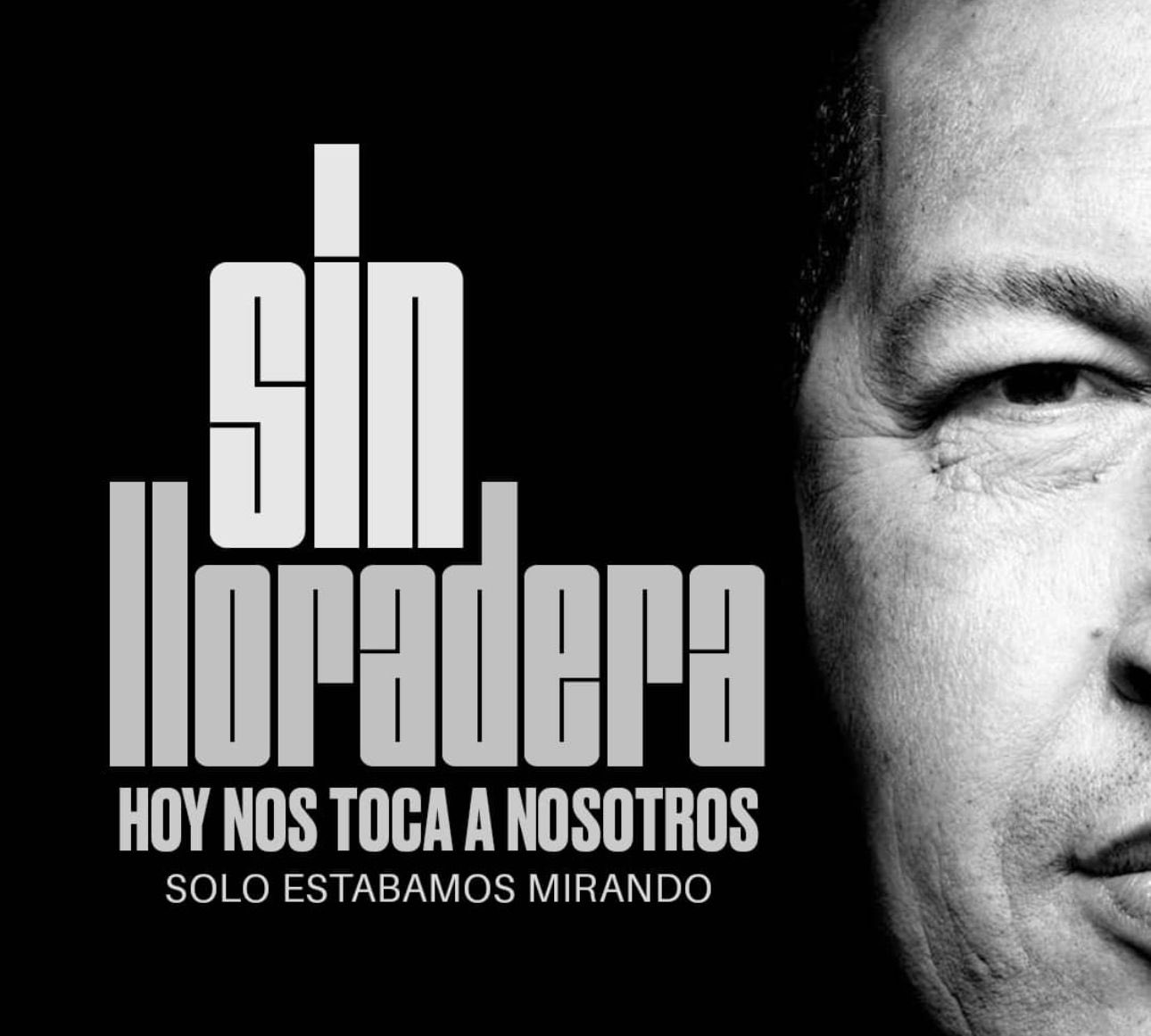When expressing discontent with the Maduro government is terrorism (the warning issued by the UN Mission about the Tun Tun operation)

Operation Tun Tun, whose name comes from a popular bonus, resurfaced after the presidential elections. Venezuela’s security forces resumed repressive patterns of 2017. The independent UN Mission for Venezuela explains it in its most recent reportpublished in full on Tuesday, October 15: “A woman, whose family lived through one of these operations, explained that the ‘Tun Tun is that they go to the houses, knock, and if they don’t open, they knock you down there (the door) and take you away. the person and they say absolutely nothing’. Another said that the security forces ‘arrived apartment by apartment, banging on the doors to get people to open.'”
The UN Mission indicates that “the detention of the people within the framework of this operation” occurs only for the “fact of having expressed their dissatisfaction with the electoral result in videos or messages disseminated through networks or applications of instant messaging. The authorities classified these behaviors as acts of terrorism and hatred.
According to the Mission, “the high number of arrests in the first three days of post-election protests It is largely related to the fact that security forces detained protesters during the protests or very shortly after they were dissolved. Sometimes, people did not even participate in protest events and were detained when they were in their surroundings or in more distant places.”
Likewise, many people were arrested weeks after the protests had taken place: “These arrests took place in the homes of the victims, who were removed with express or veiled threats, with disproportionate contingents of security forces agents, or even by the force. In several cases, arrests were also carried out at the capital’s airport.”
What does the UN Mission report say about Operation Tun Tun?
The Mission documented four cases in which physical and psychological torture was used “to force detainees, especially children and young people, to record videos admitting to having received money from the opposition to participate in violent protests and destruction of property.” public and private.”
In five other cases, the detainees were recommended to admit the charges to benefit from less severe penalties and procedural benefits: “The accused were threatened that, if they did not admit the crimes, they would end up ‘rotting in prison,’ ensuring that they could not prove their innocence in court.”
In another case, it was documented that a detained child and his family member were forced to sign a document after the preliminary hearing without being allowed to read it.
The Mission highlights that several State security forces disseminated their arrest operations from their social media accounts. “They have done it, both to show results, and to generate a threatening and dissuasive effect on those who protest or criticize the electoral results or the government’s positions,” he explains.
“The Mission also documented cases of arrests of people who had previously been photographed or filmed by agents of security forces and even groups,” he indicates.
“In a case investigated by the Mission, two men were arbitrarily detained on July 30 after being photographed by a member of a group when they went to a health center to treat one of them injured in a protest,” he adds.

More than 1,000 arrested after protests against the results of the presidential elections. Photo EFE/ Ronald Peña
The detainees
The UN Mission documented the arrest of 66 members and leaders (including nine women) of various opposition parties and political groups.
It also documented the arrest of at least six human rights defenders and activists between August 2 and 4.
10 journalists and media workers were also detained. The arrests included 7 men and 3 women. “In addition to the arbitrary arrests, the Mission documented threats of arrest and defamatory disqualifications against journalists by various authorities,” it points out.
The Mission documented the arrest of at least seven public officials, 15 people belonging to indigenous peoples, and university students and professors.
“Operation Tun Tun” is political persecution against Venezuelans who defend the TRUTH, and the truth is that @EdmundoGU He is the President-Elect of Venezuela, elected by an immense majority on July 28.
We continue fighting until the end together @MariaCorinaYA 🇻🇪 pic.twitter.com/3eU9mZzsd0
— María Oropeza (@mariaoropeza94) August 6, 2024
The case of María Oropeza, another victim of the Tun Tun operation
Maria Oropeza She was arbitrarily detained in her home by a commission from the Dgcim and the PNB on August 6. She was the regional coordinator of Edmundo Gonzalez’s National Campaign Command in Portuguesa.
At 6:30 pm, Oropeza broadcast a video on his social networks warning that the government was carrying out Operation Tun Tun against political leaders and those who participated in post-election demonstrations. That day, at 9:00 pm, security agents showed up at his house located in Guanare. Oropeza filmed the arrival of the officials before his arrest.
That same day, María Oropeza’s mother began a journey through different facilities in search of her daughter.
“On August 8, the Dgcim published a video on its social networks about Operation Tun Tun, in which images of Oropeza’s arrest and the search of his home were used. The video, edited by Dgcim itself, includes music and horror movie images with scenes of the arrest and raid. It also includes images of María Oropeza, including one leaving a small plane handcuffed by Dgcim agents, and another leaving with her face covered from a van, in which she was also handcuffed and escorted by Dgcim agents. The scene of the plane transfer led Oropeza’s relatives to the conclusion that they had taken her to Caracas and they decided to look for her there.”
On August 9, an official from El Helicoide informed them that Oropeza was detained there.
The Inter-American Commission on Human Rights granted precautionary measures in favor of María Oropeza on August 10.
“The Mission considers that Oropeza’s detention fits into a previously identified pattern of detaining opposition or perceived opposition individuals for exercising their freedom of expression. In the case of Oropeza, the Mission observes that she was detained after having broadcast a video on her social networks in which she indicated that the Government was carrying out an operation to persecute political opponents, called operation Tun Tun.
Independent journalism needs the support of its readers to continue and ensure that the uncomfortable news they don’t want you to read remains within your reach. Today, with your support, we will continue working hard for censorship-free journalism!

